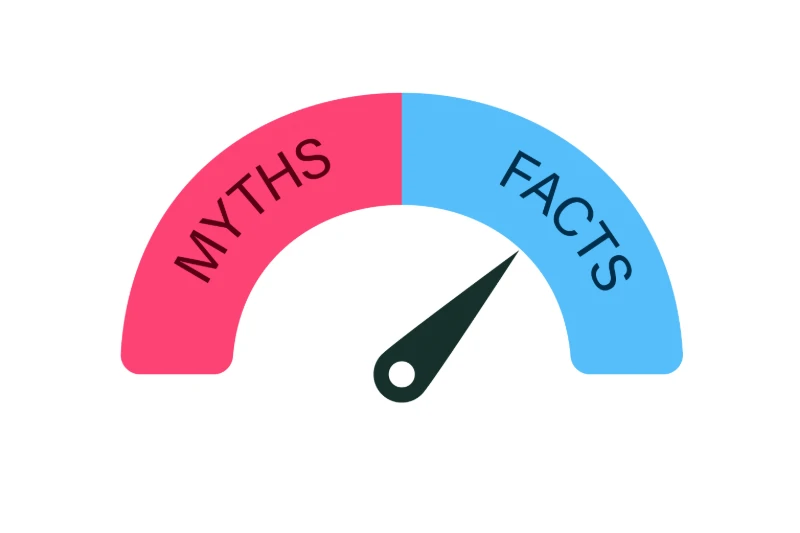When it comes to getting a mortgage, there’s no shortage of misinformation. Many homebuyers, especially…
Tax Benefits of Owning a Home
Homeownership provides several tax benefits, including the homestead exemption, tax credits, and tax deductions. In this article, we’ll explain the basics of these benefits. However, it’s best to talk to a tax advisor or accountant for more personalized and detailed tax advice. Remember that tax laws change frequently, so it’s essential to stay up-to-date each year on new tax benefits that may be available.
What is a Homestead Exemption?
The homestead exemption is a reduction in your property tax bill that you may qualify for. Check with your state or local government to find out if you are eligible.
What are Tax Credits?
A tax credit reduces your tax bill by the amount of the credit. For example, if you receive a $400 tax credit, you will owe $400 less in taxes. One example of a tax credit is the Renewable Energy Tax Credit, which allows you to get a credit for installing renewable energy systems in your home, such as solar panels. You may also be eligible for a tax credit for making energy-efficient improvements to your home, such as installing insulation, skylights, or certain types of heating and cooling systems. Any State Tax incentives your state offers for renewable energy improvements can be seen at www.energy.gov. Another example of a tax credit is the Mortgage Credit Certificate, offered to homebuyers by certain states. It can provide a credit of up to $2,000 per year on your federal tax bill.
What are Tax Deductions?
A tax deduction reduces your taxable income. For instance, if you earn $60,000 annually and deduct $5,000 for that tax period, your taxable income will be reduced to $55,000. Some examples of tax deductions include:
– Mortgage Interest: You can deduct this interest from your taxes depending on the amount you borrowed and when you bought your home.
– Property Tax: Some can deduct property taxes, state and local income taxes, and sales taxes, reducing their taxable income to $10,000 (or $5,000 if married, filing separately).
– Debt from Home Equity: If you use home equity debt to improve your home, you can deduct the interest paid on that debt from your taxes.
– Home Office: If you’re self-employed and use part of your home exclusively for business, you can deduct some of your office expenses.
– Medical Equipment: If you make home improvements or install medical equipment to aid you, your spouse, or dependents who live in your home, you may be able to deduct the costs of these features.
Are Mortgage Insurance Fees Deductible from My Taxes?
As of 2023, new homeowners can no longer deduct mortgage insurance from their taxes. However, this law could change, so asking a tax advisor for the most updated information is best.
What Types of Home Improvements and Renovations are Tax Deductible?
If home improvements were made that were required for medical care (for example, making a home accessible for a disability), those improvements are tax deductible. But other home improvements or renovations, such as landscaping or replacing appliances, may not be tax deductible while living in the home. However, keeping a record of all home improvement costs can help reduce the taxable profit you make from selling your home if you choose to do so.
What if I Set Up a Home Office? Is that Tax Deductible?
You can likely deduct that portion of your home if you have a home office. However, this tax deduction generally does not apply to W2 employees and is more for self-employed or independent contract workers to deduct their home office expenses. Deductible expenses include office supplies, furniture, electronics, and utilities such as internet.
What are Some Non-Deductible Homeowner Expenses?
Some expenses that are generally not tax-deductible include:
– HOA Dues
– Homeowner’s Insurance for Your Primary Residence (unless it’s a rental property)
– Appraisal Fees
– Home Improvements that are Not Medically Necessary (keep receipts if you sell your home!)
Summary of Homeowner Tax Benefits
To summarize, find out if you qualify for a homestead exemption, and consider tax credits and deductions for energy-efficient improvements, mortgage interest, property tax, home equity debt, home office expenses, and medical equipment. Remember that some costs are not tax-deductible, such as HOA dues, homeowner’s insurance for your primary residence, appraisal fees, and home improvements that are not medically necessary. Tax Benefits of Owning a Home
Homeownership provides several tax benefits, including the homestead exemption, tax credits, and tax deductions. In this article, we’ll explain the basics of these benefits. However, it’s best to talk to a tax advisor or accountant for more personalized and detailed tax advice. Remember that tax laws change frequently, so it’s essential to stay up-to-date each year on new tax benefits that may be available.
What is a Homestead Exemption?
The homestead exemption is a reduction in your property tax bill that you may qualify for. Check with your state or local government to find out if you are eligible.
What are Tax Credits?
A tax credit reduces your tax bill by the amount of the credit. For example, if you receive a $400 tax credit, you will owe $400 less in taxes. One example of a tax credit is the Renewable Energy Tax Credit, which allows you to get a credit for installing renewable energy systems in your home, such as solar panels. You may also be eligible for a tax credit for making energy-efficient improvements to your home, such as installing insulation, skylights, or certain types of heating and cooling systems. To see what your state tax incentives offer for renewable energy improvements, visit energy.gov. Another example of a tax credit is the Mortgage Credit Certificate, offered to homebuyers by certain states. It can provide a credit of up to $2,000 per year on your federal tax bill.
What are Tax Deductions?
A tax deduction reduces your taxable income. For instance, if you earn $60,000 annually and deduct $5,000 for that tax period, your taxable income will be reduced to $55,000. Some examples of tax deductions include:
– Mortgage Interest: You may be able to deduct interest. It depends on how much you borrowed and when you bought your home.
– Property Tax: Some can deduct property taxes, state and local income taxes, and sales taxes, reducing their taxable income to $10k (or $5k if married and filing separately).
– Home Equity Debt: If you use debt from your home equity to improve your home, you can deduct the interest paid on that debt from your taxes.
– Home Office: If you’re self-employed and use part of your home exclusively for business, you can deduct some of your office expenses.
– Medical Equipment: If you make home improvements or installations of medical equipment to aid you, your spouse, or dependents who live in your home, you may be able to deduct the costs of these features.
Can a Homeowner Deduct Mortgage Insurance Fees from Taxes?
In 2023, new homeowners can no longer deduct mortgage insurance from their taxes. However, this law could change, so asking a tax advisor for the most updated information is best.
Are Home Improvements or Renovations Tax Deductible?
Any home improvements required for medical care, such as making your home more accessible for a disability, those improvements are tax deductible. But other home improvements or renovations, such as landscaping or replacing appliances, may not be tax deductible while living in the home. However, keeping a record of all home improvement costs can help reduce the taxable profit you make from selling your home if you choose to do so.
Can I Set Up a Home Office? Is it Tax Deductible?
With a home office, you may deduct a portion of your home from your taxable income. However, this tax deduction generally does not apply to W2 employees. It is more geared toward business owners, self-employed people, or contract workers so that they can deduct their home office expenses. Deductible expenses include office supplies, furniture, electronics, and utilities such as internet.
What are Some Non-Deductible Homeowner Expenses?
Some expenses that are generally not tax-deductible include:
– HOA Dues
– Homeowner’s Insurance for Your Primary Residence (unless it’s a rental property)
– Appraisal Fees
– Home Improvements that are Not Medically Necessary (keep receipts if you sell your home!)
Summary of Homeowner Tax Benefits
To summarize, find out if you qualify for a homestead exemption, and consider tax credits and deductions for energy-efficient improvements, mortgage interest, property tax, home equity debt, home office expenses, and medical equipment. Remember that some costs are not tax-deductible, such as HOA dues, homeowner’s insurance for your primary residence, appraisal fees, and home improvements that are not medically necessary.





